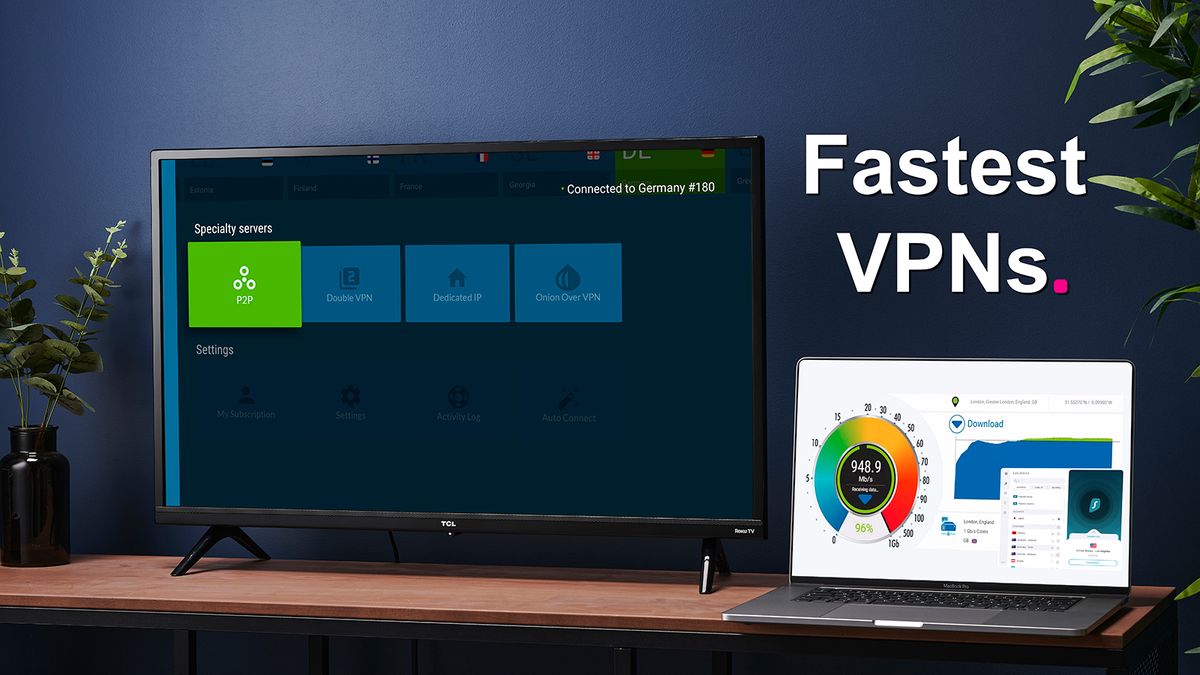Home>Software and Apps>Exploring the Benefits of Company VPNs: Enhancing Security and Connectivity


Software and Apps
Exploring the Benefits of Company VPNs: Enhancing Security and Connectivity
Modified: September 5, 2024
Discover the advantages of using company VPNs for improved security and connectivity. Explore the latest software and apps to enhance your network protection.
(Many of the links in this article redirect to a specific reviewed product. Your purchase of these products through affiliate links helps to generate commission for Techsplurge.com, at no extra cost. Learn more)
Table of Contents
Enhanced Security
One of the primary benefits of a company VPN is its ability to boost security. In today's cyber landscape, threats are omnipresent, and businesses must take proactive measures to protect their data. A VPN encrypts all internet traffic, making it virtually impossible for hackers or unauthorized parties to intercept and steal sensitive information. This encryption ensures that even if a public Wi-Fi network is compromised, the data transmitted through the VPN remains secure.
Protection Against Data Theft
When employees connect to public Wi-Fi networks, they are exposed to potential data theft. Hackers can easily intercept unencrypted data, leading to the theft of passwords, personal data, payment information, and even entire identities. A company VPN prevents this by encrypting all data transmitted over the internet, ensuring that only authorized personnel can access the information.
Protection Against Malware and Phishing
Malware and phishing attacks are common threats that can compromise a business's security. A VPN acts as a barrier between the internet and the company's network, preventing malware and phishing attempts from reaching internal systems. By encrypting all traffic, a VPN makes it difficult for malicious software to penetrate the network, thereby reducing the risk of data breaches.
Compliance with Regulations
Many industries are subject to strict regulations regarding data protection. For instance, the General Data Protection Regulation (GDPR) in the European Union requires businesses to protect sensitive personal data. A company VPN helps businesses comply with these regulations by ensuring that all data transmitted over the internet is encrypted and secure.
Improved Connectivity
A company VPN not only enhances security but also improves connectivity for remote workers. With the rise of remote work, businesses need to ensure that their employees can access company resources and data from anywhere in the world. A VPN provides a secure and reliable connection, allowing employees to work efficiently without worrying about data security.
Access to Geographically Restricted Content
In some regions, certain websites or content may be restricted due to geographical limitations. A company VPN can bypass these restrictions by masking the user's IP address, allowing employees to access the necessary resources regardless of their location.
Unified Network Experience
A company VPN can create a unified network experience for employees across different locations. By connecting all remote offices to the corporate network through a VPN, businesses can ensure that all employees have access to the same resources and data, fostering a cohesive work environment.
Types of VPNs
There are two primary types of VPNs used by businesses: remote access VPNs and site-to-site VPNs.
Remote Access VPNs
Remote access VPNs allow individual employees to connect their devices to the corporate network from anywhere in the world. This type of VPN is ideal for employees who work remotely or travel frequently. It ensures that each employee's device is securely connected to the company's network, protecting sensitive data and applications.
Site-to-Site VPNs
Site-to-site VPNs connect multiple networks, such as a corporate network and branch office networks. This type of VPN is commonly used by businesses with multiple offices in different geographic locations. It allows the company to use an internet connection for private traffic rather than private multiprotocol label switching (MPLS) circuits, reducing costs and improving scalability.
Implementation and Management
Implementing and managing a company VPN requires careful planning and execution. Here are some key considerations:
Router VPN
Implementing a VPN directly on the router can be an effective way to secure multiple devices connected to the same internet connection. This approach is particularly useful for devices that are not easy to configure, such as smart TVs. However, managing a router VPN can be more complex if the router does not have its own user interface, potentially leading to incoming connections being blocked.
Company VPN
A company VPN is typically created by the IT team and requires personalized setup and technical support. The main advantage of a corporate VPN is a fully secure connection to the company's intranet and server, even for employees working outside the company using their own internet connection. This setup allows the company to log and monitor activities and data transfers, minimizing the risk of data leakage.
Read more: Exploring the Benefits of VPNs with No Logs
Mobile Solutions
Many VPN providers offer mobile solutions that can be downloaded directly from app stores like Google Play or the Apple App Store. These mobile VPNs are essential for devices storing payment information or other personal data, ensuring that employees can surf the internet securely even on their smartphones.
Features of a Comprehensive VPN Solution
A good VPN should perform several critical tasks to ensure comprehensive security and privacy. These features include:
Encryption of IP Address
The primary job of a VPN is to hide the user's IP address from the internet service provider (ISP) and other third parties. This allows users to send and receive information online without the risk of anyone but the VPN provider seeing it.
Encryption of Protocols
A VPN should also prevent users from leaving traces, such as internet history, search history, and cookies. The encryption of cookies is especially important because it prevents third parties from gaining access to confidential information like personal data, financial information, and other content on websites.
Kill Switch
A kill switch is a critical feature that detects sudden downtime in the VPN connection and terminates preselected programs to reduce the likelihood that data is compromised. This feature ensures that even if the VPN connection is interrupted, sensitive information remains protected.
Two-Factor Authentication
Using two-factor authentication methods, a strong VPN checks everyone who tries to log in. For example, users might be prompted to enter a password, after which a code is sent to their mobile device. This makes it difficult for uninvited third parties to access the secure connection.
Limitations and Considerations
While company VPNs offer numerous benefits, there are also some limitations and considerations to keep in mind:
Speed
Internet speed is the primary determinant of VPN speed. VPN speed cannot be any faster than the internet connection between a device and the corporate network. Additionally, VPN technology itself can impact speed, as encryption and authentication technologies may increase data size or redirect traffic through multiple checkpoints.
Complexity
Depending on the VPN used, setting it up can be complex, especially for those without technical expertise. Choosing a beginner-friendly VPN service can help avoid these issues. Norton Secure VPN, for example, can be set up in minutes and offers great protection without logging traffic.
Quality Variance
Not all VPNs are created equal. Free VPNs may be free because they are loaded with ads, contain adware or malware, offer limited capabilities, or are cracked versions of paid VPNs. Paid VPNs usually have better encryption, are updated more regularly, and have other features that make them more useful and safer than free versions.
A company VPN is an essential tool for businesses looking to boost security and connectivity. By encrypting all internet traffic, protecting against data theft, and improving connectivity for remote workers, a company VPN provides a robust solution for businesses operating in today's digital landscape. While there are some limitations to consider, such as speed and complexity, the benefits of using a company VPN far outweigh the drawbacks. As businesses continue to evolve and expand globally, investing in a reliable and secure VPN solution is crucial for maintaining a competitive edge and protecting sensitive data.











